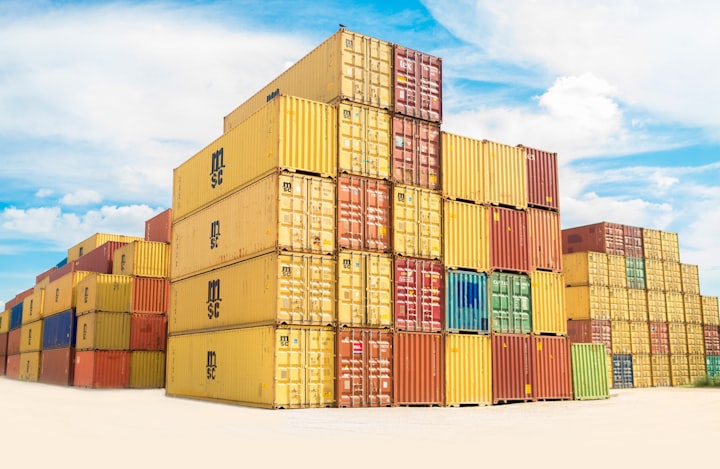10 Tips When Using a International Shipping Company
How to Find the Right Freight Forwarder for You

To a novice, shipping can sound a complex industry whether you are moving from Australia, moving to New Zealand or looking to import from China or the US, from the US to the UK, or the UK to the European Union, if you get the basics right from the start, shipping is not a complex industry. However, finding the right company is essential so you can sleep at night knowing your cargo is in good hands, will arrive in good time and be handled with the due care and attention it deserves.
So you're finally ready to make your shipment, the next issue at hand:
What company should I use?
This decision needs to be an educated one, the company needs to be trustworthy, with plenty of recommendations, reliable and reasonably priced.
Here are ten top tips to help you make the right decision when it comes to choosing the right freight company.
Tips for Choosing an International Shipping Company
There are many aspects to take into consideration when looking to use freight services and shipping cargo.
Looking at their tools, their services and overall experience with international operations and cost should all play a part in your decision-making process in finding the right company for you.
#1 - Compliance
The first port of call (no pun intended) is ensuring that your company is fully compliant within the industry and the destination of the cargo.
A quick check into their licensing and registration is easily done online today. All professional companies that deal internationally are linked to various associations such as AMSA, FIDI or RIM that movers should be affiliated to, this comes with a high level of customer service.
Within the United States, they would be registered with an NVOCC number which will be authorised and confirmed by the Department of Maritime Commission for customers on the United States side.
#2 – Cargo Loading Services
There are an abundance of cargo loading services that all reputable companies should offer, a very poignant question to ask to establish if you are dealing with the right company is simply:
What loading services do you offer?
The most common form is door 2 door shipping. The pre-requisite of this form of shipping is that the shipping company packs and loads your goods for delivery to the chosen destination, thus taking and keeping things simple with minimal work at your end so international relocations and international removals run smoothly.
#3 - Container Sizes and Capacities
This is fully dependent on what is to be shipped. The standard shipping container size is a 20 or 40-foot container. These are the usual containers for household goods and car shipping for example. Perishable goods, on the other hand, are a different dynamic which includes temperature control. Within the industry, these are commonly referred to as ‘Reefers’.
Items such as antiques, rare paintings and expensive furniture should by the company you are looking to use, suggest that you use this type of service to ensure your goods are kept in perfect condition throughout its journey. For anyone looking to ship standard personal effects/goods then one of the standard containers will suffice.
#4 - Tracking Your Cargo
One of the most overlooked parts of any shipment (given the technology available to all of us today) is the tracking of the goods. In 2020 there are all kinds of tracking tools available and any lack of perfection in this area should make you think twice about any shipping or freight company’s services.
During the transit period, you should have regular email updates as standard, but now the more advanced companies will provide you with online tracking codes complete with GPRS to ensure you can follow your shipment 24/7 around the world.
Some freight companies will charge additional fees for the levels of tracking, which is not necessarily a red flag not to use their services, some will include certain levels in the overall price, either way, you are well-advised to make sure you have one eye on your goods at all times.
#5 - Pricing
One situation you will undoubtedly encounter during this experience is when certain companies offer a sea freight price but seem to be adding additional fees or charges to the list.
These fees can be for services such as fuel, insurance and tracking.
To ensure that these are included in the overall price, note that hidden fees should be disclosed, so do not hesitate to ask for a breakdown before moving ahead.
#6 - Industry Standards
When shipping overseas, industry standards apply. Be sure when doing your due diligence that the company in question adheres to laws and abides by regulations of the government to which the goods are being received – notwithstanding your own of course.
It’s important in freight forwarding that during packing, wrapping and shipping, they have a global professional agent network, ensuring it is handled correctly at the destination port, as they are responsible for ultimate delivery to the chosen address.
#7 - The Companies Safety Record
A reputable company will have safety certification and values for moving items available on their website, and if not, by demand. A reputable company will use long-standing and reliable vessels in the industry that also have licensed operating procedures.
You can ask your potential shipping company who they use to ship the goods, and subsequently check their safety records, but a reliable company would not put you at risk in the first place.
#8 - Making Sure Insurance is in Place
This is a vital question to ask, as your goods should under normal circumstances be insured from the start of the shipping process until the delivery. If anything unforeseen happens during this process you need to know that your goods are ‘guaranteed’ insured.
The main shipping company usually covers the insurance. In the United States, for example, the minimum insured is US$.60 per lb. Ask about additional insurance if you feel that you require it and some companies will offer you what is known as ‘supplemental’ insurance, but you should enquire about the basic insurance first.
The test of a good international shipping company is that they suggest an insurance company they are already in partnership with, adding to their credibility.
#9 - Providing Holding Facilities
It is not unbeknown in the industry for goods to arrive early or potentially late, so what happens in this scenario?
This is a must-ask question and can save a lot of money and stress. The question to ask is: Are there storage days included in the price?
If items are late for pick-up, also enquire about a fee and where is the pick-up point.
As I mentioned in tip #3, if you have perishable goods 'Reefers'; Ask are the facilities capable of holding goods that require refrigeration?
#10 - Compare and Ask for a Discount
When you are comparing international shipping companies, remember to ask for a discount, there is usually room for negotiation as there are many factors to take into consideration, and it never hurts to ask.
There will most likely be different rates for different dates, where travel could be priced lower, so consider that.
Conclusion
Global freight is a well-established industry and with today's technology is easy to track and due diligence is relatively simple if you query and ask the right questions to the potential carrier.
Following the basic guidelines above, you will be on track as well as your cargo.
About the Creator
Mitchell Wekey
Brand specialist and tech junkie, in-charge of promotions and marketing at Rocket Freight International, reputable freight forwarding providing import-export, vehicle shipping and international removals services via air or sea freight.






Comments
There are no comments for this story
Be the first to respond and start the conversation.